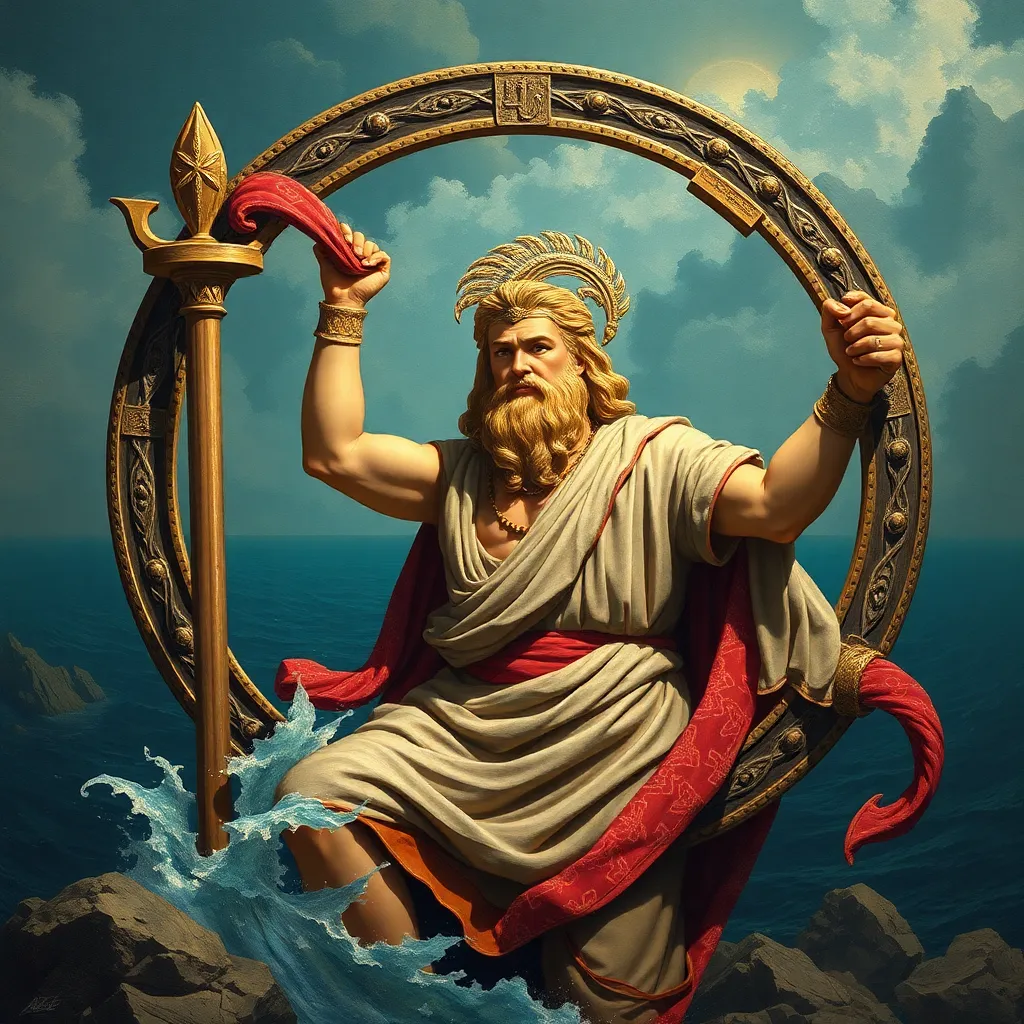The Odyssey and the Exploration of Masculinity: Odysseus as a Man
I. Introduction
Homer’s “The Odyssey” is not only a tale of adventure and heroism but also a profound exploration of human identity and the complexities of masculinity. This epic poem narrates the long and perilous journey of Odysseus, a Greek hero whose experiences reflect the societal norms and expectations of male identity in ancient Greece. An examination of masculinity in literature is crucial as it reveals how cultural narratives shape our understanding of gender roles.
Odysseus emerges as a complex masculine figure, embodying traits that both conform to and challenge the traditional ideals of heroism. Through his journey home, he navigates the intricacies of strength, intelligence, vulnerability, and leadership, making him a rich subject for exploring the nuances of masculinity.
II. Historical Context of Masculinity in Ancient Greece
To fully appreciate Odysseus as a character, it is essential to understand the historical context of masculinity in ancient Greek culture. Greek society placed a high value on certain norms and expectations for men, which included:
- Physical strength and prowess in battle
- Intellectual capability and cunning
- Leadership and authority in both public and private spheres
The heroic ideal was central to male identity, where men were expected to demonstrate bravery, honor, and loyalty. This ideal often came with significant implications:
- The necessity of proving oneself through acts of valor
- A focus on public recognition and achievements
- The pressure to maintain a stoic and unemotional demeanor
Moreover, the contrast between public and private personas of masculinity illustrated the duality of male identities, where public success often masked private vulnerabilities.
III. Odysseus as the Archetypal Hero
Odysseus represents the archetypal hero in “The Odyssey,” characterized by a blend of physical abilities and keen intelligence. Heroism in this context is not just about brute strength but also involves strategic thinking and emotional resilience.
Odysseus’ journey is a reflection of masculine ideals, showcasing his:
- Physical prowess: His ability to face formidable foes and obstacles.
- Intelligence: His cleverness in devising plans, such as the Trojan Horse.
- Emotional endurance: His capacity to withstand trials over many years.
Throughout his journey, Odysseus encounters various challenges that test not only his physical strength but also his mental fortitude, reinforcing the multifaceted nature of masculinity.
IV. The Complexity of Odysseus’ Character
While Odysseus embodies many heroic traits, his character is also marked by moments of vulnerability and emotional depth, challenging the traditional perceptions of masculinity. Key aspects of his complexity include:
- Vulnerability: Instances where he expresses grief or fear, such as his lamentation over fallen comrades.
- Strength and wisdom: His actions often reflect a balance between brawn and brains, demonstrating that true masculinity encompasses both.
- Relationships with other male characters: His interactions with figures like Achilles and Telemachus reveal layers of camaraderie, rivalry, and mentorship.
These elements contribute to a richer understanding of male identity, as Odysseus navigates both the heroic and the human aspects of his character.
V. Masculinity and Leadership: Odysseus’ Role as a Leader
Odysseus’ role as a leader is pivotal in “The Odyssey,” showcasing various leadership qualities that define his character. Some of these qualities include:
- Decisiveness: Making tough calls under pressure, such as when to confront the suitors.
- Charisma: Inspiring loyalty among his crew, even in dire situations.
- Responsibility: Bearing the consequences of his decisions on the lives of others.
His decisions significantly impact his crew, leading to both their triumphs and tragedies. The exploration of loyalty and betrayal among his male counterparts adds another layer to his leadership narrative, highlighting the complexities of male relationships in a competitive and perilous environment.
VI. The Role of Women and Femininity in Odysseus’ Journey
The female characters in “The Odyssey” serve as mirrors and challenges to masculinity, shaping Odysseus’ character and journey. Notable relationships include:
- Penelope: Represents loyalty and domesticity, challenging Odysseus’ adventures with her steadfastness.
- Circe: Embodies the complexities of female power, offering both temptation and wisdom.
- Calypso: Illustrates the tension between desire and duty, as she holds Odysseus captive out of love.
The interplay between male and female roles in the narrative highlights the tensions inherent in traditional gender roles, as Odysseus must navigate his desires and responsibilities toward women.
VII. Odysseus’ Return: Confronting Domestic Masculinity
Odysseus’ homecoming is one of the most significant aspects of “The Odyssey,” representing a confrontation with domestic masculinity. This return is marked by:
- The significance of reclaiming his home and family, restoring order after chaos.
- Transformation of identity: Odysseus evolves from a wandering hero to a domestic figure.
- Balancing heroic adventures with family responsibilities: His return signifies a shift in focus from public valor to private duty.
This transition emphasizes the need for men to reconcile their heroic pursuits with the realities of domestic life, showcasing the multifaceted nature of masculinity.
VIII. Conclusion
Odysseus stands as a multifaceted representation of masculinity, embodying both the strengths and vulnerabilities associated with male identity. Throughout “The Odyssey,” he navigates the complexities of heroism, leadership, and relationships, providing a rich tapestry for understanding masculinity in literature.
In contemporary discussions of masculinity, Odysseus’ character remains relevant as it challenges and enriches our understanding of what it means to be a man. His journey reflects the enduring legacy of “The Odyssey” in exploring the complexities of male identity, highlighting that true strength lies not only in physical prowess but also in emotional depth and the capacity for growth.




